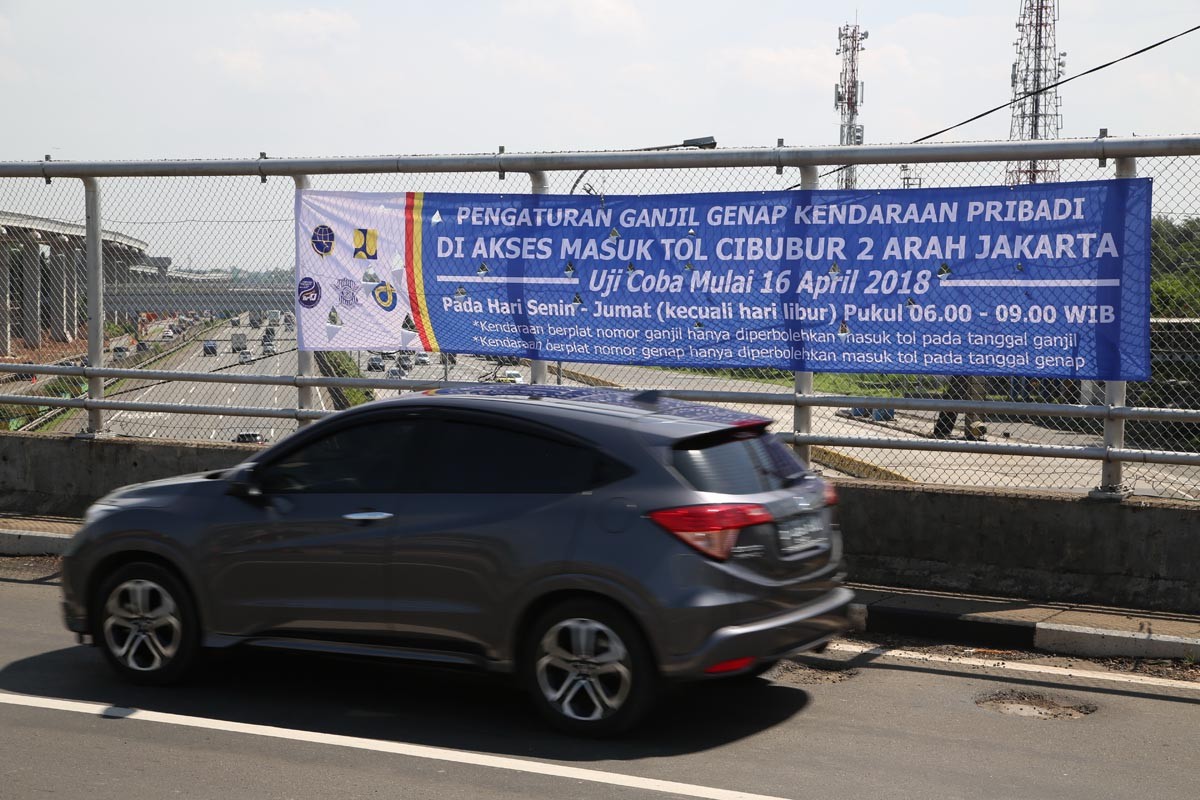Popular Reads
Top Results
Can't find what you're looking for?
View all search resultsPopular Reads
Top Results
Can't find what you're looking for?
View all search resultsExtend odd-even policy
Data compiled during the Asian Games from Aug. 18 to Oct. 2 showed that the average speed of vehicles increased by 44 percent and CO2 emissions decreased by 20.3 percent in the city.
Change text size
Gift Premium Articles
to Anyone
T
he dust has hardly settled since Jakarta played host to the Asian Games and the ensuing Asian Para Games, and Governor Anies Baswedan has decided to extend the odd-even license plate policy for private cars, after seeing the benefits of the traffic restriction imposed during the Games.
Initially designed to facilitate the movement of athletes competing in the two major sporting events, the traffic scheme will remain in place on Jakarta’s thoroughfares and has been expanded to other parts of the capital known for their unbearable congestion until the end of the year. There are some adjustments, with the restrictions taking effect every day during morning and evening rush hours, except for weekends and national holidays.
No doubt the city administration has made the right decision, given the positive impacts of the policy on easing overall traffic and carbon-emission levels. Data compiled during the Asian Games from Aug. 18 to Oct. 2 showed that the average speed of vehicles increased by 44 percent and CO2 emissions decreased by 20.3 percent in the city.
From whichever angle, the extension and expansion of the odd-even license plate regulation deserves support. The reduction of carbon emissions lowers the health hazards resulting from millions of toxic particles that circulate in the air, thus improving the city’s quality of life.
Improvement in the city traffic also means a lot in terms of economic value. The Greater Jakarta Transportation Management Body has estimated economic losses resulting from wasted fuel and the late delivery of goods as a result of traffic congestion at Rp 100 trillion (US$6.85 billion) last year.
The extension of the traffic policy is deemed necessary to facilitate the ongoing major transportation infrastructure projects, in particular the much-awaited MRT and light rapid transit (LRT). The second phase of the MRT project is scheduled to begin by the end of this year, while the first phase is slated for completion and operation in March next year. The LRT is expected to start operating next January.
Grumbling motorists have nevertheless become accustomed to the restriction since its trial in July, and the government’s decision to keep the policy intact at least for another two and a half months should not matter to them. It would be proper if the city administration permanently enforced the policy to encourage more motorists to use public transportation, especially when the LRT and MRT are ready for use.
Reliable and convenient public transportation should eventually encourage Greater Jakarta residents to leave their cars at home — although Governor Anies has pointed to increasing car sales since the introduction of the odd-even policy, as people seek to own cars with odd and even plates. The more incentives, the more likelihood people will sensibly choose public transportation over private cars.
As the odd-even scheme alone is never enough, the government could consider disincentives, such as vehicle-ownership restrictions and/or vehicle age limits, as well as increasing car ownership taxes and parking fees and other mechanisms that would force people to think twice before buying a car.










